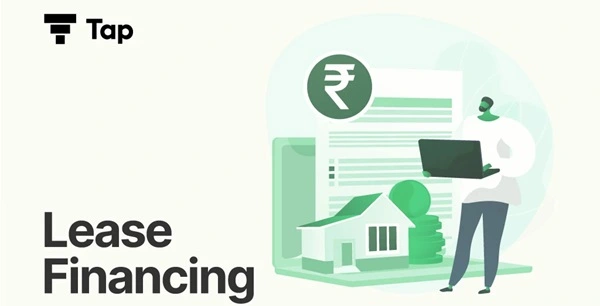To put it in the simplest words possible, lease financing is nothing but a contractual agreement made between the owner of the property and another party (usually a company), where the owner grants the rights of their property or asset to the other party to use in return for a regular payment. And if you truly want to know what lease financing is and how it works, then we will for sure recommend you dive deeper into the possible advantages and disadvantages of lease financing. That way, you’ll know what it means to be a lessor (owner of the asset) and the lessee (user of the asset) in lease financing. Well, that is precisely what we are onto today, so yes, let’s get started with just that, shall we?

Advantages of Lease Financing
For the Lessor
- Steady Cash Flow: The advantage that any lessor loves the most is the guarantee of a smooth, continuous flow of income. Lease contracts set, the lessee makes regular payments within the period that the lease covers. This is an unending income, something useful for remaining financially stable and planning.
- Retention of Ownership: When leasing out a piece of land, the lessor allows the lessee to retain ownership of the land. This means that, while the lessee uses the land, you still maintain ownership of it and any value that will be growing over time. After the lease period is over, you can reclaim the asset. This, therefore, means that you can dispose of the asset or lease it to another person again.
- Tax Advantages: There are certain tax benefits that accompany leasing, such as in a case where one owns the asset. It allows one to reduce the depreciation from his taxable income, which is more so beneficial for a person in a higher tax bracket and greatly cuts down on one’s tax bill.
- Lucrative and Growth Opportunities: The leasing sector often yields high returns due to the rental rates being more favorable than the interest costs on the funds used to purchase the assets. The more such people come into a business that is looking to lease rather than buy assets, especially when budgets are tight, the more opportunities exist for the growth and expansion of your business.
For the Lessee
- Capital Savings: Lease financing saves your capital. Instead of making a huge investment all at once for the purchase and acquisition of an asset, the company has to give small lease installment payments. This ensures that a business avails capital for use in other more effective areas of the business while at the same time improving the liquidity and operational flexibility of the business.
- Off-Balance Sheet Financing: An operational lease needs not to be shown in the balance sheet. It improves some financial metrics of your company, such as return on assets and debt-to-equity ratio, since it does not show up as a debt, hence, it looks like better financial health for an investor or creditor.
- Tax Benefits: Often, as a lessee, lease payments you would usually pay can often be taken as business expenses, hence reducing your taxable income. Tax efficiency is an essential element of the financial strategy that may reduce the total cost of the asset during the lease period.
- Flexibility and No Obsolescence Risks: Leasing gives flexibility to financial planning and is easily manageable with regard to budgets. You lock in fixed lease payments, aiding in cash flow management and economic forecasting. The lessee, in addition, is responsible for updating or replacing the outdated equipment, that way you do not face the risk of obsolescence.
Disadvantages of Lease Financing
For the Lessor
- Fixed Income: In times of inflation, the consistent income from lease payments might not be so beneficial. Why? Because it stays the same even as costs go up, which can eat into profits.
- Double Taxation: Double taxation hits you, depending on your geographical location in the world. The first one occurs when you acquire the asset, and the other happens when you rent it out. These can ramp up your costs, and hence the financial results from the operation.
- Risk of Asset Damage: When the lessee doesn’t own the asset, they might not take the best care of it and thus may be exposed to getting damaged or poorly maintained. This will leave the asset at more risk, reduce its value, and leave you with greater expenses when the asset has to be taken back for fixing up for the next lease.
For the Lessee
- Higher Overall Cost: So, leasing may seem an attractive proposition at first, however, this is far from the reality, as, on summing up all the payments throughout the lease term, they tend to be more than the actual price if you bought the asset, especially for long-term leases. Simply put, in the long run, leasing can end up being more expensive than just buying the asset outright.
- Limited Control and Flexibility: And with signing a lease comes a lot of limits too. You mostly cannot carry out any changes to the item that will make it work for you just the way you wanted. Want to get out of the lease earlier than agreed upon? That could also prove expensive. Early termination fees can be hefty, tying your hands and diminishing your ability to adapt operationally.
- Long-Term Commitment: Lease agreements normally bind you to an unduly long-term commitment. Especially in this fast-changing sector, that could be problematic when your business needs change. That’s because, you see, being stuck in a lengthy lease can prevent you from keeping pace with industry changes and market demands.
Final Thoughts
All in all, lease financing can be super beneficial for both the asset owner and the lessee aka the user of the asset. But there sure are some downsides to lease financing, and if you know how to tackle those or overcome those challenges, then you are pretty much good to go. This whole lease financing thing is super popular these days because you know, the lessor gets the regular payment for their asset without putting it up for sale, and the lessee gets to use the asset without paying up the full value of the asset or property.

